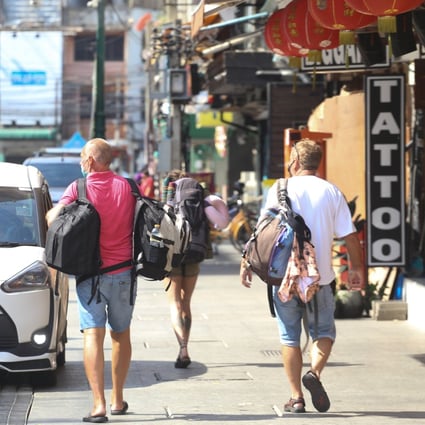Asian Travelers Are Confused By Sustainable Travel: Thats An Industry Problem
Net zero, carbon neutral, sustainable, offset - how popular are these words, do travelers know what they mean? Will they value sustainable tourism products more than industrial ones?
Sustainability has always been at the heart of successful destination management. The information in the reports serves as a barometer of how broad consumer understanding has changed over time when it comes to greener travel.
However, most Asian consumers report a lack of access and information, and hard-to-verify claims, as the main reasons why they are not choosing sustainable travel options. Will they be able to stand alone among the nomads of the world?
With consumers increasingly demanding sustainable travel options, it is important to share information in a transparent and meaningful way to make sustainable travel an easier option for everyone.
Compared to other regions, Asian travelers are 95 percent more likely to choose sustainable travel, compared to 74 percent in the Americas and 69 percent in Europe, according to Expedia's latest sustainable travel study.
Booking.com's first Asia Pacific Traveler Sentiment Index also shows travelers' continued interest in travel.
According to a recent BlackBox study, 51 percent of travelers in Southeast Asia spend at least half or more of their monthly income on sustainable travel.
The pandemic has also made consumers more aware of human-made environmental degradation and encouraged them to reduce harm.
Although some travel companies are trying to educate and educate consumers, the road to sustainability is long, according to this year's Skift Sustainable Tourism Summit.
What Asian Travelers WantAs for “walking,” it varies from person to person and from country to country. For example, Japanese travelers consider supporting the local economy to be the best option for sustainable travel, while Chinese vacationers consider reducing the environmental impact of their trip the most important.
Jeremy Tran, founder of Sainha, a company that develops business strategies for sustainable development, points out that "Asian travelers are not afraid to spend money on sustainable vacations, such as eco-friendly, ethnically-motivated accommodations." .
Laura Holdsworth, Managing Director of Booking.com and Vice President of Asia Pacific, noted that travelers from Asia are showing a growing desire to engage in purposeful, purposeful and sustainable travel.
Houldsworth says that the intent to travel responsibly and providers of travel and accommodation services who provide a sustainable travel experience make travel more rewarding.
Wego CEO and co-founder Ross Fitch noted that many Asian travelers naturally choose sustainable destinations and accommodations, but "sustainability" isn't a particularly conscious part of the decision-making process.
Fitch said many of the popular destinations and local hotel brands located far from major Asian cities have developed somewhat organically in harmony with local environments and communities.
These destinations have long been popular with Asian consumers, but their "sustainability" has not been touted as an advantage. "I think it's more like a western market," Fitch said.
Rajesh Maju, co-founder and CEO of MakeMyTrip, said Indian travelers are just getting started, although awareness is growing. Recently, an Indian online travel agency, which is a member of the World Council on Sustainable Tourism, launched the Early Days of Sustainable Tourism in India.
The role of stakeholders in sustainable developmentSainha's Tran noted that hospitality destinations and providers need to do more to communicate the values of sustainability, reputation and green services to their target audiences.
At the national level, some Asian governments are beginning to move away from relying on mass tourism. Many hotels in Asia have also joined sustainability-based alliances with strict membership criteria, while others have gone through an evaluation process to obtain the seal of approval from independent sustainability certification bodies such as EarthCheck, Green Globe and Green Key.
“Every business is concerned with adopting sustainable practices at one level or another. Every player who travels strives to achieve that, we are definitely very focused,” said Magao of MakeMyTrip.
Booking's Holdsworth notes that there is reason to believe travelers are paying more attention to sustainability measures brands are taking, and acknowledged that building a truly sustainable travel industry will take time, coordination and collaborative effort from industry and government.
Product innovation, partner support, and industry collaboration can help millions of customers around the world promote sustainable travel.
“We want to make sustainable travel a way to experience the world, but we know it's not something we can do on our own. If we want to make real sustainable change, we need to work with our partners and the entire industry,” said Holdsworth.
Chan noted that more and more public and private actors in the tourism and hospitality industry in Asia are realizing the importance of overcoming the climate crisis. “Many are beginning to incorporate sustainability principles into their businesses to balance the planet, people, and prosperity.”
Wego's Fitch points out that destinations operated by enlightened governments have always had to carefully plan for the growth of their tourism sector in order to increase visitor numbers while maintaining harmony with the local environment and the community that made the destination popular in the first place.
“There are many examples of previously popular destinations that were out of balance,” Fitch said.
Holdsworth said the interest and desire to be more sustainable will increase in the near future. "This is the perfect time to refocus our sustainability initiatives, and I would say this is essential if you are in the hospitality business."
Consumers in Western markets are becoming more aware that the current carbon footprint and lifestyle are unsustainable, making Western consumers particularly sensitive to marketing messages related to sustainability themes.
As a result, Fitch cautioned, any trend or action aimed at these Western consumers would be to check the boxes needed to include these sustainability messages: "Some are important, but many are environmentally friendly."

Komentar
Posting Komentar